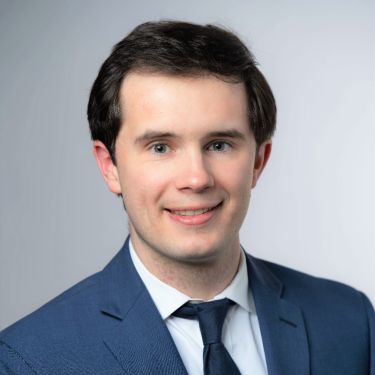Dr. Derek Lake is an instructor of population health sciences in the Division of Health Policy and Economics. Before joining Weill Cornell Medicine, he completed a postdoctoral fellowship at Brown University.
How did you first become involved in health economics?

Dr. Derek Lake
While completing my undergraduate degree, I began working as a research assistant to a health economist investigating the effect of certain policies on neonatal outcomes and healthcare outcomes for pregnant people. Though I was pursuing a degree in accounting and finance, I knew then that I wanted to commit to health services research. In the following years, I completed a master’s in health policy and economics and a PhD in health services research with a concentration in health economics. Concurrently, I gained valuable experience working as a strategic consultant for various health systems, hospitals, and health insurance companies, which helped inform my current research agenda.
It can feel as though the state of American healthcare is in disarray, with many experts suggesting that our healthcare system is only worsening. As a health economist, I seek to understand that system, improve patient experiences and population health, and reduce costs by conducting high-quality research which informs healthcare financing and delivery reform.
Tell us about your research.
My research is focused on how payment and delivery reform affect healthcare spending and outcomes among older Americans, especially for those with post-acute or long-term care needs, such as nursing home care. In my work, I primarily leverage quasi-experimental research designs using observational data. For my PhD dissertation I developed a novel methodology for comparing patient outcomes between elderly Americans enrolled in government-run and privately administered Medicare Advantage plans. This work was recognized among the Best of 2023 Annual Research Meeting at the AcademyHealth Annual Research Meeting. Building upon my doctoral research, my active work focuses on how disadvantaged populations are affected by enrollment in Medicare Advantage plans.
During my time as a postdoctoral research associate, my research provided new evidence of the comparative effectiveness of post-acute settings in influencing patient outcomes among Medicare beneficiaries. Further, I evaluated the effectiveness of the Medicare Shared Savings Program on patient outcomes and examined the role of state policies on their long-term care workforces.
What brings you to Weill Cornell Medicine?
I wanted to start my career in a place where I could learn from exceptional individuals focused on research similar to mine, while contributing my expertise to support and expand existing research investigations. Weill Cornell Medicine was certainly the right choice. The Division of Health Policy and Economics receives tremendous leadership from division chair Dr. Beth McGinty, and I am fortunate to be surrounded by an interdisciplinary group of highly motivated and accomplished faculty members.
I’m also originally from New York and was part of the first cohort of the MS in Health Policy and Economics program at WCM, so it’s nice to be back home. I am excited to begin my academic career at WCM and look forward to what lies ahead.
Are there any trends or issues you are currently following in your field?
I am currently prioritizing three topics. Medicare is both privately and publicly administered, and I’m particularly interested in how nuances in private Medicare may selectively disadvantage underrepresented populations, including people with lower socioeconomic status and racial/ethnic minorities. In collaboration with Dr. Robert Tyler Braun, assistant professor of population health sciences, I am also investigating the proliferation of mergers and acquisitions in the healthcare space. Large insurance companies have begun acquiring various medical practices and vertically integrating them, allowing for greater top-to-bottom control. While these acquisitions are rapidly changing the ownership structure of healthcare practices in the U.S., it is unclear whether this restructuring will impact the quality and cost of healthcare. Finally, in collaboration with Dr. Arian Jung, associate professor of population health sciences, I am exploring the changing workforce of the American healthcare system, especially in long-term care; another issue that hasn’t been widely evaluated. I aim to examine how the rapid increase in the number of nurse practitioners and physician assistants in nursing homes affects patients and the care they receive.
- Highlights

